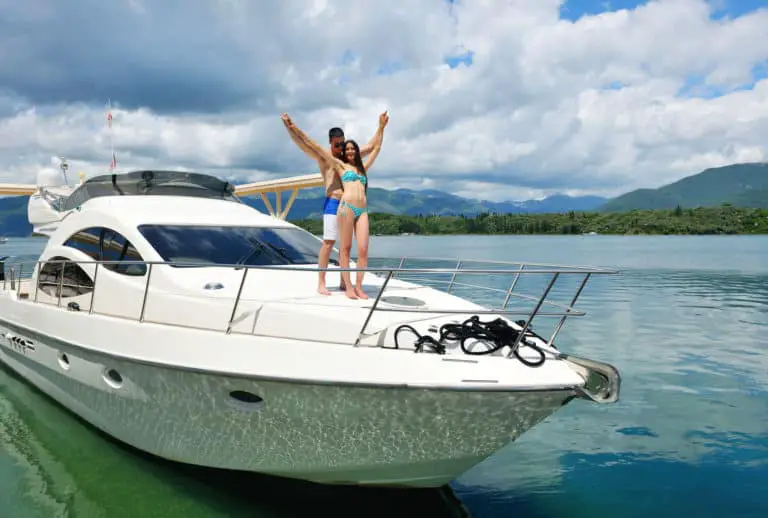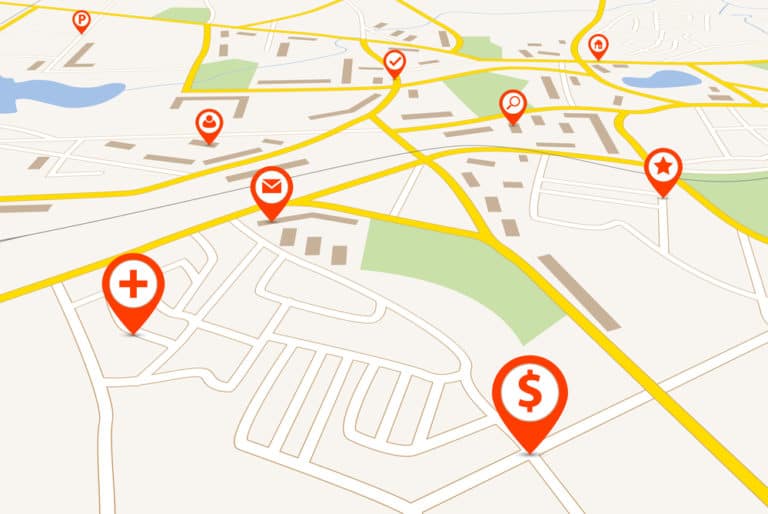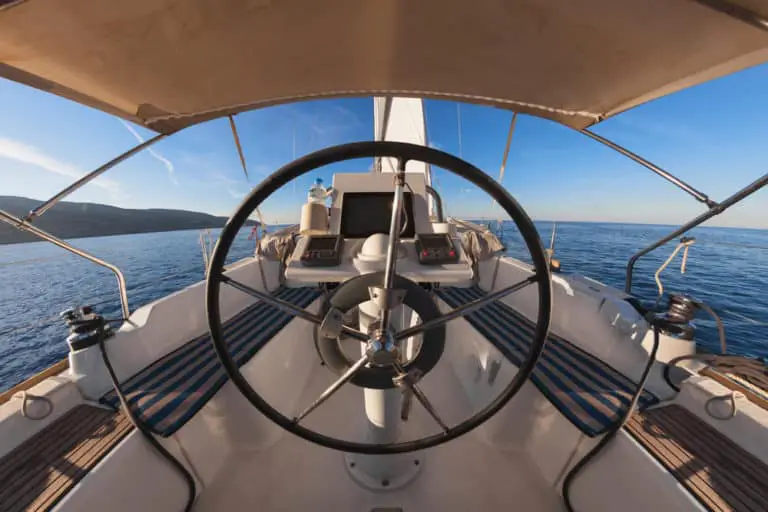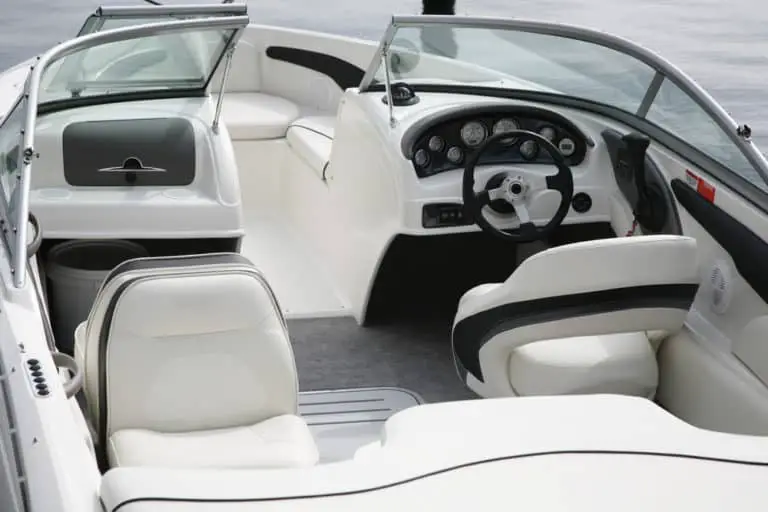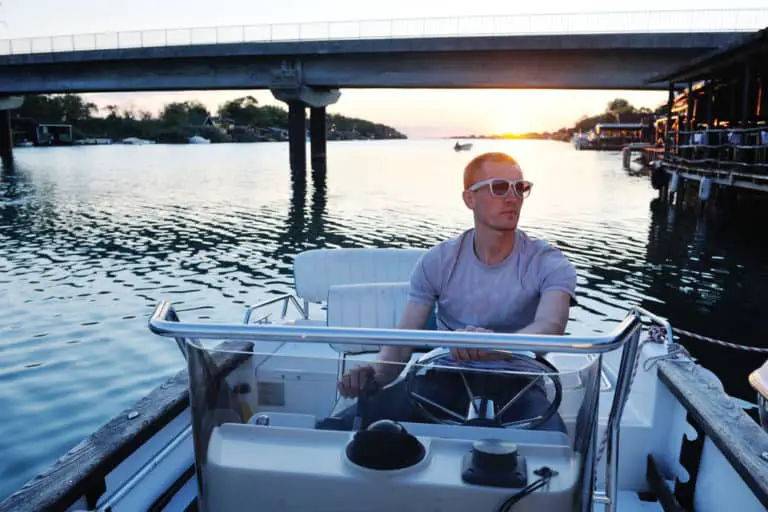Do You Need a License to Drive a Boat in 2024? (U.S. & Canada)
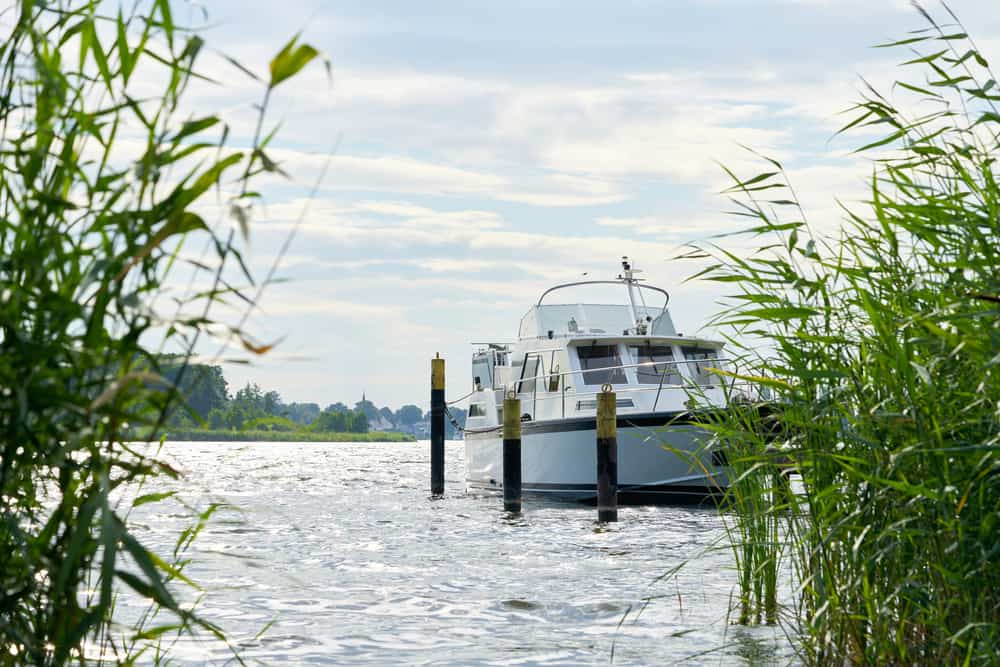
It’s getting to be prime vacationing time, and if you’re traveling to enjoy some time on the water, you will need to ask yourself do you need a license to drive a boat at your destination? Many states do require some sort of licensing to legally boat on their waters.
- Do You Need a License to Drive a Boat?
- What About a Boating License in Canada?
- Taking a Boating License Course
- Where to Take the Boating License Course?
- How Much Does it Cost?
- What’s the Course Like?
- Always Take a Boating Safety Course
- The Importance of Boater Education and Laws
Do You Need a License to Drive a Boat?
There is no one right answer to this, a significant number of states require a license to drive a boat legally. Boating can be a very dangerous activity if the operator is not familiar with safe operation and navigation.
The majority of states require some form of boating education, even if they do not require licensing, and all can be done online.
There are several sites that offer state-specific boating certificates. Boat Smart is a great resource to make sure you have the appropriate prerequisites before renting a boat or hitting the boat ramp.
The table below will show you the specifics of which states require licensing, education, or both, as well as age information and links for more info.
| License required | Education required | Date of birth limitation | Minimum age | Restrictions | Read More | |
| Alabama | Yes | Yes | E.g. 1998, 1st of January | 12-14 for learner license, 15 for full license | 12-14 must be accompanied by boater 21+ | Read More |
| Alaska | No | No | N/A | N/A | N/A | Read More |
| Arizona | No | No | N/A | N/A | N/A | Read More |
| Arkansas | No | No | Jan. 1, 1986 | N/A | N/A | Read More |
| California | California Boater Card | Yes | N/A | N/A | N/A | Read More |
| Colorado | During learning period | No | N/A | 14-15 for learning period, 15 for full license | N/A | Read More |
| Connecticut | Yes | Yes | N/A | N/A | N/A | Read More |
| Delaware | Yes | Yes | Jan. 1, 1978 | 14-16 for learning, 16 for license | N/A | Read More |
| Florida | Yes | Yes | Jan. 1, 1988 | N/A | N/A | Read More |
| Georgia | During learning period | No | N/A | 12-15 for learning, 16 for license | N/A | Read More |
| Hawaii | Yes | Yes | N/A | 15 | N/A | Read More |
| Idaho | For PWC only | No | N/A | N/A | N/A | Read More |
| Illinois | For learning period only | No | Jan. 1, 1988 | 10 | N/A | Read More |
| Indiana | No | No | N/A | 15 | N/A | Read More |
| Iowa | For learning period only | No | N/A | 12-18 | N/A | Read More |
| Kansas | For under 21 | No | Jan. 1, 1989 | 12-20 | N/A | Read More |
| Kentucky | Yes | Kentucky Safe Boating Card | N/A | 12 | N/A | Read More |
| Louisiana | Yes | N/A | Jan. 1, 1984 | 17 | N/A | Read More |
| Maine | Yes | N/A | N/A | 12 | N/A | Read More |
| Maryland | Yes | N/A | Jul. 1972 | 16 | N/A | Read More |
| Massachusetts | Yes | N/A | N/A | 12-16 | N/A | Read More |
| Michigan | For under 21 | N/A | N/A | 12-15 | N/A | Read More |
| Minnesota | For learning period only | N/A | N/A | 12-17 | N/A | Read More |
| Mississippi | Yes | N/A | Jun. 30, 1980 | N/A | N/A | Read More |
| Missouri | Yes | N/A | Jan. 1, 1984 | N/A | N/A | Read More |
| Montana | For learning period only | N/A | N/A | 13-14 | N/A | Read More |
| Nebraska | Yes | N/A | Jan. 1, 1986 | 14-18 | N/A | Read More |
| Nevada | Yes | N/A | Jan. 1, 1983 | N/A | N/A | Read More |
| New Hampshire | Yes | N/A | N/A | 16 | N/A | Read More |
| New Jersey | Yes | Yes | N/A | 16-18 | N/A | Read More |
| New Mexico | Yes | Yes | Jan. 1, 1989 | 13 | N/A | Read More |
| New York | Yes | Yes | May 1, 1996 | 10-14 | N/A | Read More |
| North Carolina | Yes | N/A | Jan. 1, 1988 | 14-16 | N/A | Read More |
| North Dakota | Yes | N/A | N/A | 12-15 | N/A | Read More |
| Ohio | Yes | N/A | Jan. 1, 1982 | 12-16 | N/A | Read More |
| Oklahoma | For learning period only | N/A | N/A | 12-16 | N/A | Read More |
| Oregon | Yes | N/A | N/A | 12-16 | N/A | Read More |
| Pennsylvania | Yes | N/A | Jan. 1, 1982 | 11-16 | N/A | Read More |
| Rhode Island | Yes | N/A | Jan. 1, 1986 | N/A | N/A | Read More |
| South Carolina | For learning period only | N/A | N/A | 16 | N/A | Read More |
| South Dakota | For learning period only | N/A | N/A | 12-14 | N/A | Read More |
| Tennessee | Yes | N/A | Jan. 1, 1989 | 12 | N/A | Read More |
| Texas | Yes | Yes | Sept. 1, 1993 | 13 | N/A | Read More |
| Utah | For learning period only | Yes | N/A | 16-17 | N/A | Read More |
| Vermont | Yes | No | Jan. 1, 1974 | 10-12 | N/A | Read More |
| Virginia | For learning period only | No | N/A | 14-15 | N/A | Read More |
| Washington | For learning period only | No | N/A | 12-20 | N/A | Read More |
| West Virginia | Yes | No | Jan. 1, 1987 | 12-14 | N/A | Read More |
| Wisconsin | Yes | No | Jan. 1, 1989 | 16 | N/A | Read More |
| Wyoming | No | No | N/A | 16 | N/A | Read More |
What About a Boating License in Canada?
Until legislation was updated in 1999, recreational boating in Canada did not require any boating license or proof of training and so anyone could operate a boat without regard to their knowledge or experience.
Since then, all recreational boaters in Canadian waters are required to obtain proof f competency. There are a number of various documents that an operator can keep handy to serve as proof.
These can include a Pleasurecraft Operator Card, certificate of completion of a Canadian boating safety course, marine certificate, certification or licensing from their country of origin, or even a rental boat safety checklist that is valid for the rental period.
For more information about Canada’s recreational boating regulations and requirements, including those for visitors and non-residents, click here.
Taking a Boating License Course
Taking a boating license course is an ideal way to make sure you can safely operate a boat wherever you go, as well as being the first step to getting any state-mandated boat driver’s license that may be required in areas that you visit.
Be sure that when you evaluate a course to take you take a look at the time limit for testing. While most testing sites will allow you to save your progress if you need to step away for any reason, but some will time out and invalidate your test if inactive for too long.
Where to Take the Boating License Course?
Boat Smart has boater safety courses for not just the United States but Canada as well, and they are touted as Canada’s official online safety course provider. They are approved by NASBLA, as well as USCG and state authorities.
With boating education courses for more than 48 states, Boat Ed can get you tested for between $20 and $40. They are approved by NASBLA, USCG, and Transport Canada.
If you are looking for a free course, BoatUS can provide a free boater education course for 38 states. While it’s free, they do ask for a donation, and you cannot take the test on any mobile device.
How Much Does it Cost?
Getting your boating license will usually be a relatively modest expense, but an enormous value in the context of the knowledge you get. For the widest-reaching safety credentials, be sure that your course s NASBLA approved and meets the requirements for licensing in your state.
Most course and exam providers will provide boater education course materials and testing for under $50 in the majority of cases. There may be a state fee for the license, sometimes referred to as an application fee, license fee, or similar. These fees are usually nominal, but they can be unexpected.
What’s the Course Like?
Whether you’re taking a safety course to get your recreational or speed boat license, you will have the chance to learn many aspects of small craft boating safety.
You will start with the basics of handling a boat as well as evaluating and understanding weather. There will also be coverage of slightly more advanced topics, like navigation, etiquette, and engine maintenance.
A basic boating education course will provide the operator with a foundation of basic and intermediate knowledge regarding the safe operation and handling of their vessel. This foundation can frequently be used to obtain a boat operating license in states that require them.
Always Take a Boating Safety Course
As you see, there are some states that require neither licensing nor boater education, and while this may seem convenient at first glance since you won’t have to “worry about” the time and potential cost of taking a safety course, the risks always outweigh the benefits.
Taking a formal boater safety course can give you the knowledge you need to stay safe in the face of potential danger.
When you pass a boating safety course you will be equipped with the knowledge that will make you a safer and overall better boater, but it also helps you beat the odds. Most boating accidents that result in a fatality involve one or more boaters that have not passed a basic boating safety course.
Since you may eventually go boating in other states, it will help you prove competency there as well, so you stay on the right side of the law.
The Importance of Boater Education and Laws
Boaters education and boating safety are incredibly important because as our waterways grow increasingly crowded, it significantly reduces the occurrence of both property damage and injury.
This isn’t limited to the safety of your vessel and passengers either, being familiar with boater safety and education keeps everyone on the water safer.
With the availability of affordable and easy boater education courses, there really isn’t any reason to not be certified. Sites like BoatUS and Boat Ed both offer state-specific boater safety programs either free or for a nominal cost.
Even though I’m not required to be licensed for Missouri, I wanted to take the education course. It took a few hours and less than $25 for the course and exam. This will be good in more than 48 states, thanks to NASBLA reciprocity.
FAQ
Do you need a boating license?
Depending on where you will be boating, you may be required to obtain a boat driving card for the area where you will be operating.
How old do you have to be to drive a boat?
There is no hard and fast rule for the minimum age to drive a boat and many states have minimum age limits as low as 10 for learning.
How old do you have to be to rent a boat?
This is another question that will highly depend on your location. Many places will have requirements for boat driving that may not apply to the act of renting, which may have different limits entirely.
Do you need a boating license to rent a boat?
You will need a license to operate a boat if the state requires it, and it’s a safe bet that a state that requires a license will need to verify that before completing a rental.
How old do you have to be to get a boating license?
The minimum age for a boat driving license will differ by state, with many states having a “learning period” where younger boaters can operate when supervised by the appropriately licensed adult.
How to get a boat license?
The process for obtaining a boat license will vary slightly by state, but generally, you can study and test for the license online.
How long does it take to get a boating license?
This will depend on the boat license requirements for that state, but usually, it’s only a few hours’ worth of study material and an exam. The entire process can be completed in only a few hours in most cases.

